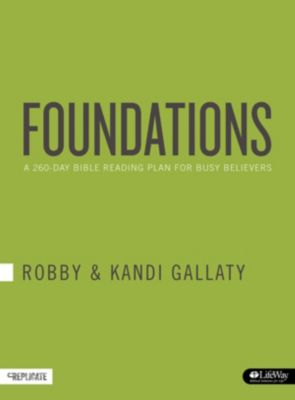
Churchgoers are quick to say it’s important to understand the Bible but often neglect practices that help them do so.
By Scott McConnell
Churchgoers are quick to say it’s important to understand the Bible but often neglect practices that help them do so.
In a recent Lifeway Research study in partnership with Explore the Bible curriculum, we asked churchgoers about the use of Scripture. We found that 93% of churchgoers say it’s important to apply the Bible’s meaning and principles to the context we live in today. Similarly, 96% believe when using Scripture it is important to understand the context in which the Bible was written.
It is almost second nature for church attendees to affirm the need to understand different aspects of the Bible’s meaning and relevance. Yet, these head nods often don’t match the attitudes and behaviors that lead to that understanding. It’s as if some members expect it to happen automatically or define understanding as just “head knowledge.”
“Churchgoers are quick to say it's important to understand the Bible but often neglect practices that help them do so.” — @smcconn Click To TweetIn contrast, the writer of Psalm 119 sees God’s Word as his means of life, source of wonder, and an avenue of strength amid grief.
My life is down in the dust;
give me life through your word.
Help me understand the meaning of your precepts,
so that I can meditate on your wonders
I am weary from grief;
strengthen me with your word. — Psalm 119:25, 27-28
How do we help move others (as well as ourselves) from only wanting to be in the know about the Bible to wanting to know Christ?
Ask God
The psalmist asks God over and over in Psalm 119 for help understanding and embracing His Word: help me understand, teach me, help me stay on the path, turn my heart to your decrees, and turn my eyes from looking at what is worthless.
We often try to figure out a passage ourselves, rather than asking God to explain it and asking Him to turn our hearts to match His direction.
As we try to help others know Christ better, we often jump to encouraging Bible reading or use of a new tool rather than starting by humbly asking the Giver to give what we do not have. As we long for growth within our congregation, these very verses can be our prayer for the people in our fellowship.
Compare paths
In Philippians 3, Paul considers his many accomplishments in the flesh. When he compares them to knowing Christ Jesus as his Lord, all of those worldly accomplishments were a loss. As he looked over all he could pursue in life, he concluded that his goal is to know Christ and the power of his resurrection and the fellowship of his sufferings.
Throughout Scripture, God has no fear of how He will measure up if we put His ways beside any other god, philosophy, or way of life. Comparing God’s ways to our own ideas and the values of those around us is humbling. If we are honest in those moments, we will come to the same conclusion Paul did. Everything else I dream up is sewage compared to the river of life that flows from Jesus Christ.
While almost all churchgoers say it is important to understand God’s Word as it was written and how to apply it to today, some have limited confidence when it comes to making some of these comparisons. About 8 in 10 churchgoers say that if someone in their community had doubts about whether the Bible is true, had trouble accepting morals as taught in the Bible, or didn’t understand a passage, they would be able to address it with them.
On the surface that’s a pretty high percentage. Taking a closer look, we see just 3 in 10 strongly agree they’re able to help their neighbor in these ways and the other 50% only somewhat agree. The majority of churchgoers realize they need to improve in their ability to apply biblical truth to real questions from those they know.
“The majority of churchgoers realize they need to improve in their ability to apply biblical truth to real questions from those they know.” — @smcconn Click To TweetAs people in our communities live for other things and hold to different values, we have an opportunity to shine like stars in a crooked and perverted generation. Notice what Paul told the Philippians was the way we can shine in this way: by holding firm to the Word of life (Philippians 2:15b-16).
Read Scripture
Reading the Bible isn’t something every Christian does. In another recent study, 59% of churchgoers indicated that they read the Bible a few times a week or more. Understanding God’s Word cannot happen without reading or listening to it. It seems simple, but the longer we are away from it the less we remember it.
As we read, truths about God are reinforced and slight variations we have convinced ourselves of are revealed. As we read, we see wonders about God that we can meditate upon like the psalmist.
As we read, we see the difficulties we’re facing addressed. The psalmist put it this way: “I told you about my life and you answered me” (Psalm 119:26). This pattern of God’s Word addressing our struggles reveals His care for us.
We can stay in tune with God’s heart and His ways by reading His Word daily.
Join a group
Engaging with the Bible includes far more than just listening to or reading it. As we ask God to help us understand Him and His Word, we need to notice when He provides this help. Can you imagine the psalmist ignoring God’s provision after he asked so many times for help in understanding His Word? Yet many in our churches don’t see it.
When the wall had been rebuilt, Nehemiah 8 tells us all the people gathered together and Ezra read the book of the Law from daybreak until noon. But something else happened as the people stood all morning. Thirteen Levite men are named who explained the law to the people.
These leaders didn’t just want people to hear the words of God, they wanted them to know the meaning. These teachers translated and explained to help people understand. That day the understanding of God’s Word brought sorrow because people recognized the gap between their lives and God’s standards. But the leaders encouraged them to have joy, and the people began to celebrate (with food of course!) that they had understood the words that were explained to them.
God provides for you and me in similar ways. There are teachers ready to explain Scripture near us. Some are in large settings using sermons and others in small groups where there is room to interact and ask questions.
Yet many people in our churches do not value the learning that can take place sitting under someone’s teaching and learning from the lives of others in a small group of believers.
In a previous study, we found on average, almost 4 in 10 churchgoers don’t participate in a small group Bible study for adults. The benefits of participating in a group are well-documented. Another such benefit surfaced in this study relates to understanding the Bible.
Churchgoers in a small group are 19 percentage points more likely than those not in a small group to be confident they can directly address a neighbor’s confusion over a Bible passage (87% v. 68%). Click To TweetAs mentioned above, 8 in 10 churchgoers at least somewhat agree they can help their neighbors with doubts, difficulties, and questions with the Bible. But there’s a large difference in confidence between those who participate in a small group Bible study or Sunday School class and those who do not.
- Those in a small group are 20 percentage points more likely to be confident they can address someone’s doubts about the truthfulness of Scripture (88% v. 68%).
- Those in a small group are 20 percentage points more likely to be confident they can address someone’s difficulties accepting morals taught in the Bible (88% v. 68%).
- Those in a small group are 19 percentage points more likely to be confident they can directly address a neighbor’s confusion over a Bible passage (87% v. 68%).
When it comes to understanding God’s Word, these four practices are worth applying. Let’s certainly commit to reading the Bible more for ourselves and leading others to do the same. But let’s also stress the importance of doing do in community, asking God for wisdom to understand His Word, and being salt and light in the process. Discipleship depends on it.










